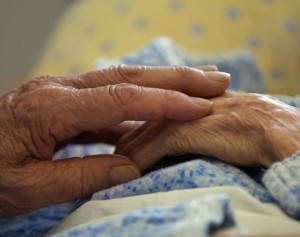Coping with Grief and Loss over the Holidays
Grief and Holidays
In October of 2015 the man who had been my husband for fifty-six years died. December found me still numb with grief and loss. As my children and I struggled to navigate the season without a compass, we were feeling a lot of things. Joy wasn’t one of them. If it was there, it was buried under a thick layer of pain.
It was time to write the annual holiday letter Jerry and I had always written together, but I felt lost.
Should I just skip it and leave friends wondering whether they’d been abandoned? Should I spill tears all over the page? Should I put on a happy face to hide the pain?
None of those choices seemed right.
Then I reflected on what had followed Jerry’s death. I realized that this was a season when grief, like the Wise Men, came bearing gifts.
I rarely weep, but tears were a gift that relieved my anguish. Old photo albums revived happy memories. I was comforted by the simple presence of my family and others who loved me. My church community took over all of the funeral planning challenges. Neighbors brought food and chipped in with practical help. Loving messages poured in through letters, cards, and phone calls. Friends picked up relatives at the airport. Jerry’s former colleagues offered help.
And so I wrote my holiday letter mindful of the gifts I was receiving, gifts wrapped in love. The grief didn’t leave, but my dominant emotion became gratitude.
I decided to write as honestly as I could. The pain was there and I acknowledged it. I realized I was not alone, that many of my friends were suffering too. A few of them had also lost a loved one. Others might be facing a frightening medical diagnosis, or the end of a marriage, or a child mired in addiction. Or they were haunted by the gnawing fears of aging or loneliness.
My own grief had sensitized me to coping with loss that was also confronting others. I realized that many of the people who wrote only about family fun and personal successes and talented kids were also carrying an invisible bucket of tears. But keeping pain locked in a closet carries an emotional, spiritual, and sometimes physical cost. I wanted to be real, hoping this would give others permission to do the same.
My former pastor once said, “We love others because of their vulnerability, not their strength.” If you’re ready to risk being vulnerable, you might begin, “This has been a hard year.” Or “a year of love and loss.” Or, more positively, “This has been a year of grit and grace.” Be positive but be real. Your own truth-telling may free others to face their own situation with courage.
On a positive note, remember you’re still alive. You’re a survivor. Reflect on your own sources of strength. Work? Faith? Family? Friends? A larger purpose? A stubborn will that won’t give up? Name it and claim it. Others may need to hear what has helped you.
Finally, include at least one story in your letter. After he died people wanted to tell me stories about Jerry. Many surprised me. They illustrated his kindness and generosity and humility. They sparkled with humor. They showed why so many people loved him. I put them in my letter.
Ending your letter on a positive note will bring hope to the recipients. Your honesty will inspire courage. Your letter may be the best gift a friend dealing with grief and loss receives.
And having given it will bring you something that feels like joy.
This essay appeared in USA Today on 12/11/17
Contributing author – Carolyn Parr with Tough Conversations














